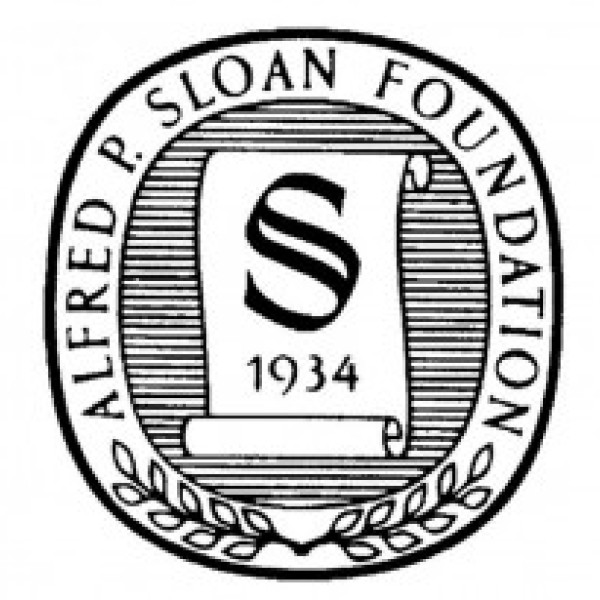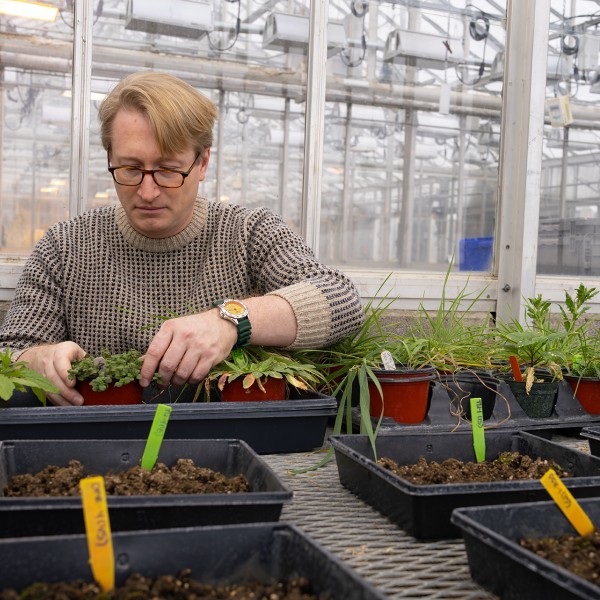“If I'm treating someone, I want the treatment to be made for them. Some people are allergic to things. Some people don't process things the same way. But no matter what, the people come first,” Bucknor said. “I was searching for that connection — how people have influenced the science — and not finding it.”
In August, she discovered a new one-credit course called Diversity, Equity, & Inclusion in STEM: The Science Behind Bias (ENTOM 4040), which offered a unique opportunity to contextualize the history of bias and exclusion in science, technology, engineering and mathematics (STEM) fields.
“I didn't learn about any person-of-color inventors, scientists, mathematicians or engineers growing up,” Bucknor said. “I feel if that representation were more present, I think myself and a lot of people wouldn't be as intimidated to explore STEM fields. And I think that would really help diversify and innovate science.”
As a woman of color and only the second person from her high school to attend an Ivy League university in the last 10 years, she saw the class as an opportunity to both reflect on her background and to learn how to shape the future of diversity in STEM.
Bucknor wasn’t alone. When registration opened, the new seminar filled up within hours. Capped at 35 participants, the class includes undergraduates, graduate students and faculty from three Cornell colleges, and their experiences span nine different STEM fields.
“The need for this course was clear,” said Corrie Moreau, lead instructor and the Martha N. & John C. Moser Professor of Arthropod Biosystematics and Biodiversity. “We are all seeking to have a safe place for these important discussions around racism and sexism, homophobia and many other issues that we're grappling within our society.”
In June, Moreau and two graduate students — Drea Darby and Amelia-Juliette Demery — seized the momentum from ongoing racial injustice demonstrations as an opportunity to act. The trio connected through social media and used their shared interests and experiences to build the seminar from scratch.
The course examines the breadth and depth of bias and exclusion in STEM — both across history and multiple axis of identity. They leverage literature to provoke discussion on how women, people of color, people with disabilities and LGBTQ+ individuals have been marginalized by the scientific community.
"We all tend to think science is objective, fair and unbiased. And the data out there says that's not, in fact, true,” Moreau said. “[But] when you know where the biases are and where the exclusion is coming in, it's easier to say we must take steps to make this a more equitable and inclusive community.”
Over the summer, Darby, a second-year Ph.D. student in the Department of Entomology, watched her professional mentors publicly acknowledging their own lack of understanding about the pervasiveness of bias in STEM, and she recognized the need for more tools that would lead to action.
“I think this seminar is really unique,” she said. “We ask the question, ‘how can we move forward in the future to mitigate this bias from occurring?’”
To create a safe discussion space, Moreau and her co-instructors designed a set of community guidelines where “stories stay, but lessons leave.” Each week, the virtual class goes over the readings as a group, then segments into breakout rooms where they can discuss the ideas in more detail.
Demery, a third-year Ph.D. student in the Department of Ecology and Evolutionary Biology, believes the students will retain lasting lessons that will help them in their careers.
“My hope is that students who take this course feel empowered to act in a moment where they feel like they can provide a different assessment or challenge the perspective being presented,” she said. “In the future, if they’re in a position to influence change — with the media, at their institution or organization, or in their own work — they will have the tools to do that.”
“I’ve learned so much from this course already, it’s invaluable to STEM majors,” Bucknor said. “One lesson I’m leaving with is that disability has a much wider range than I ever thought. Thinking about how someone’s’ disability could even be invisible – that's something I’ll keep with me as I continue my work with people. And I’ll be a better scientist because of it.”
The course has also transpired into immediate action on the Cornell campus. The students have drafted a proposal to initiate a diversity, inequality and ethics requirement for all STEM majors across the university.
Beyond Cornell, Moreau and the class coordinators are planning to develop a ‘how-to’ manual for other institutions looking to offer similar programming, and they have already been sharing background information from the syllabus with peers in their fields.
“I think the thing that I take away from this class, more than anything,” Moreau said, “is that I have so much hope for the future, because it’s clear to me that people really do want to solve these problems.”
A version of this article also appeared on the Cornell Chronicle.
Header image: The ENTOM 4040 seminar group during their Dec. 9 Zoom session. Photo by Corrie Moreau.










